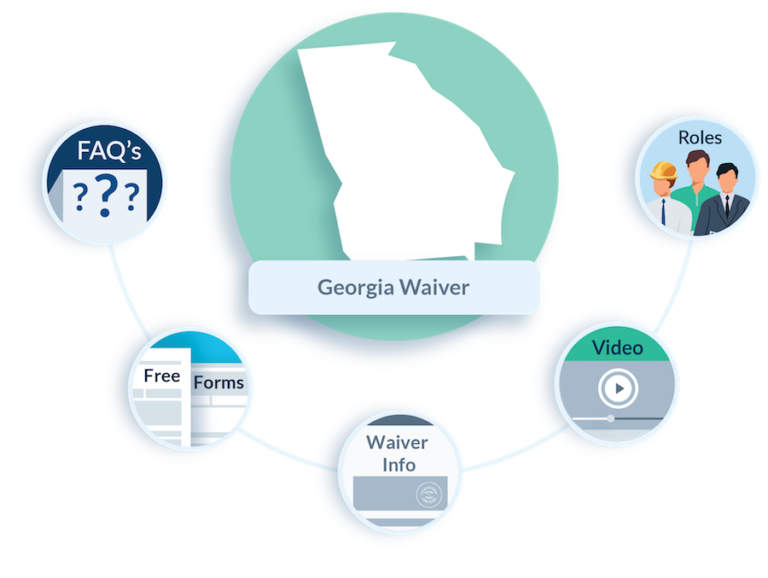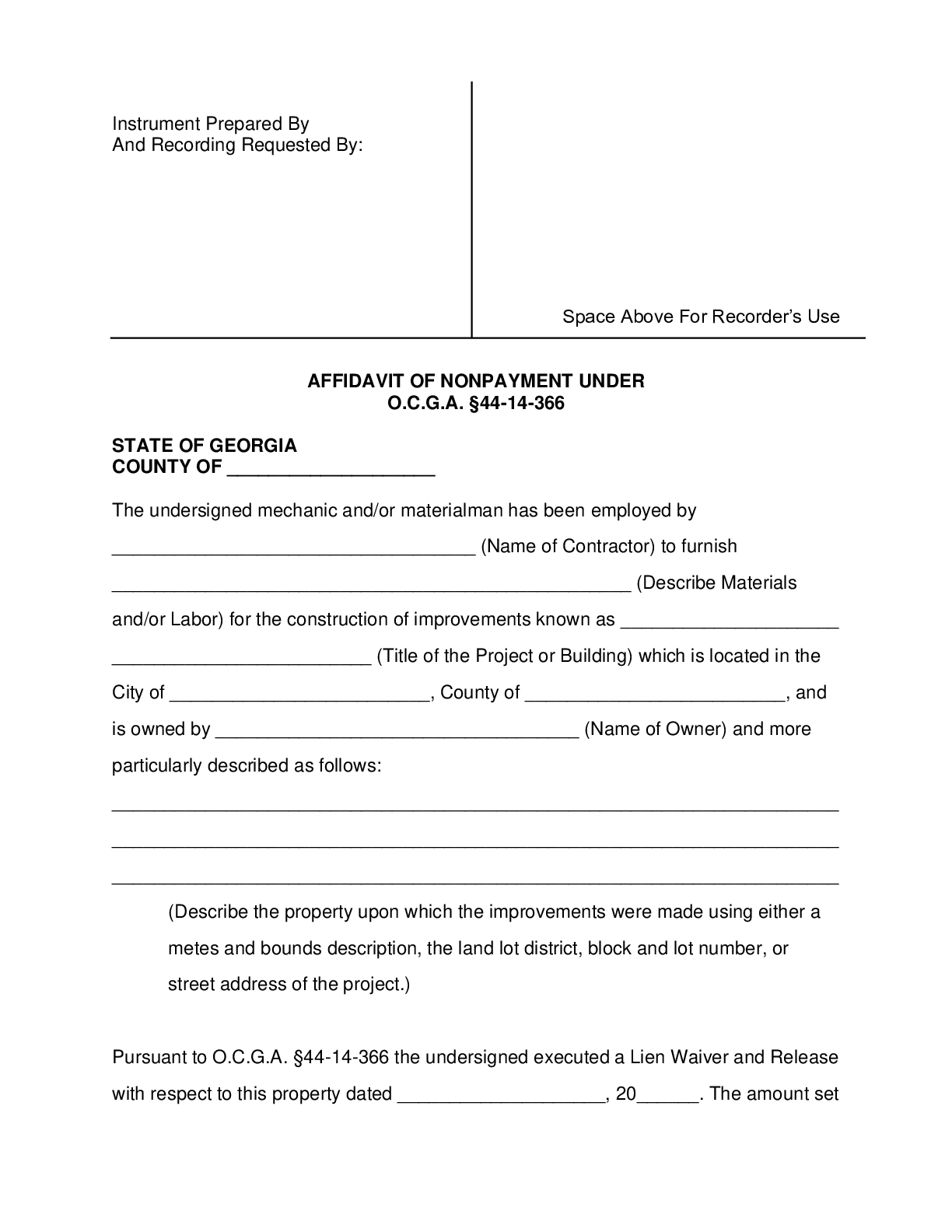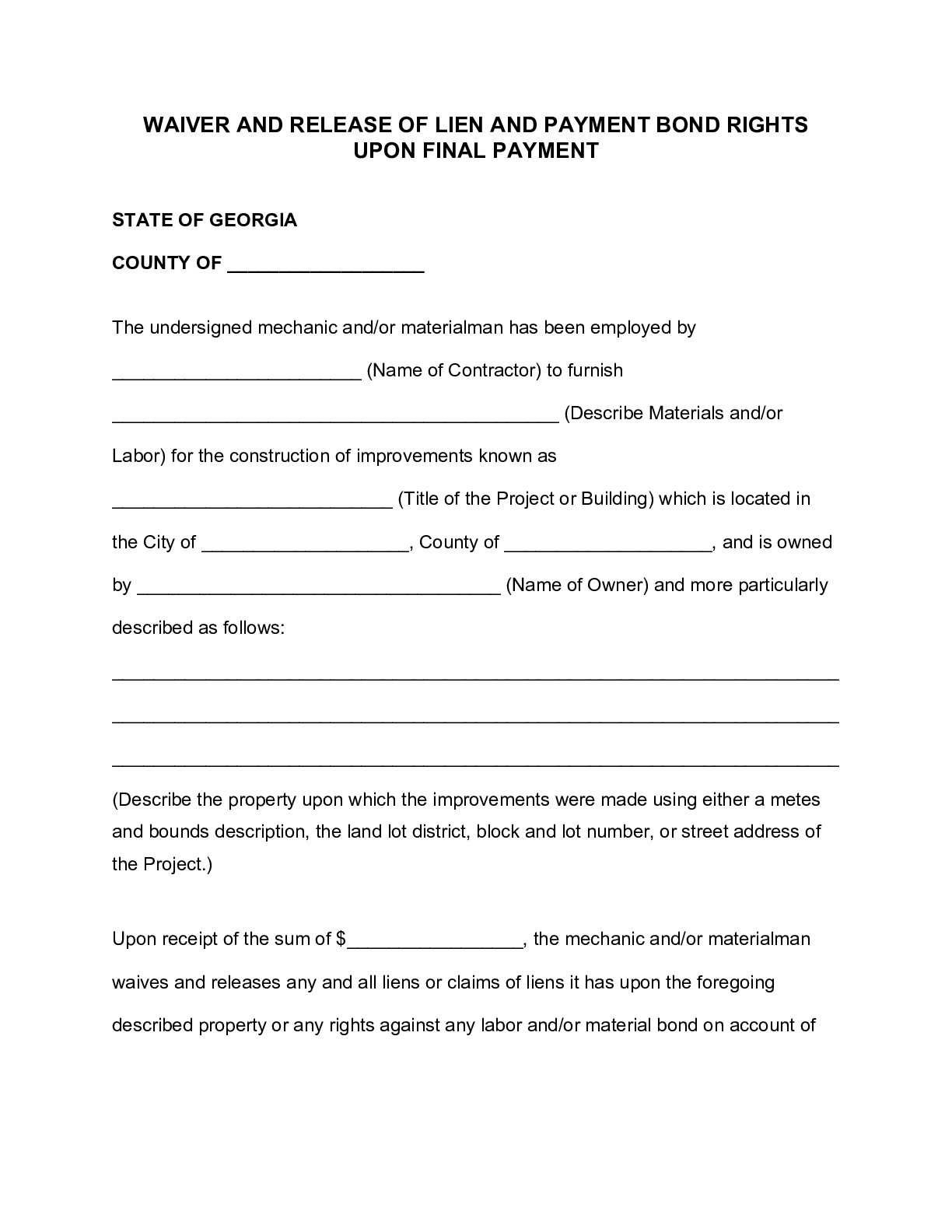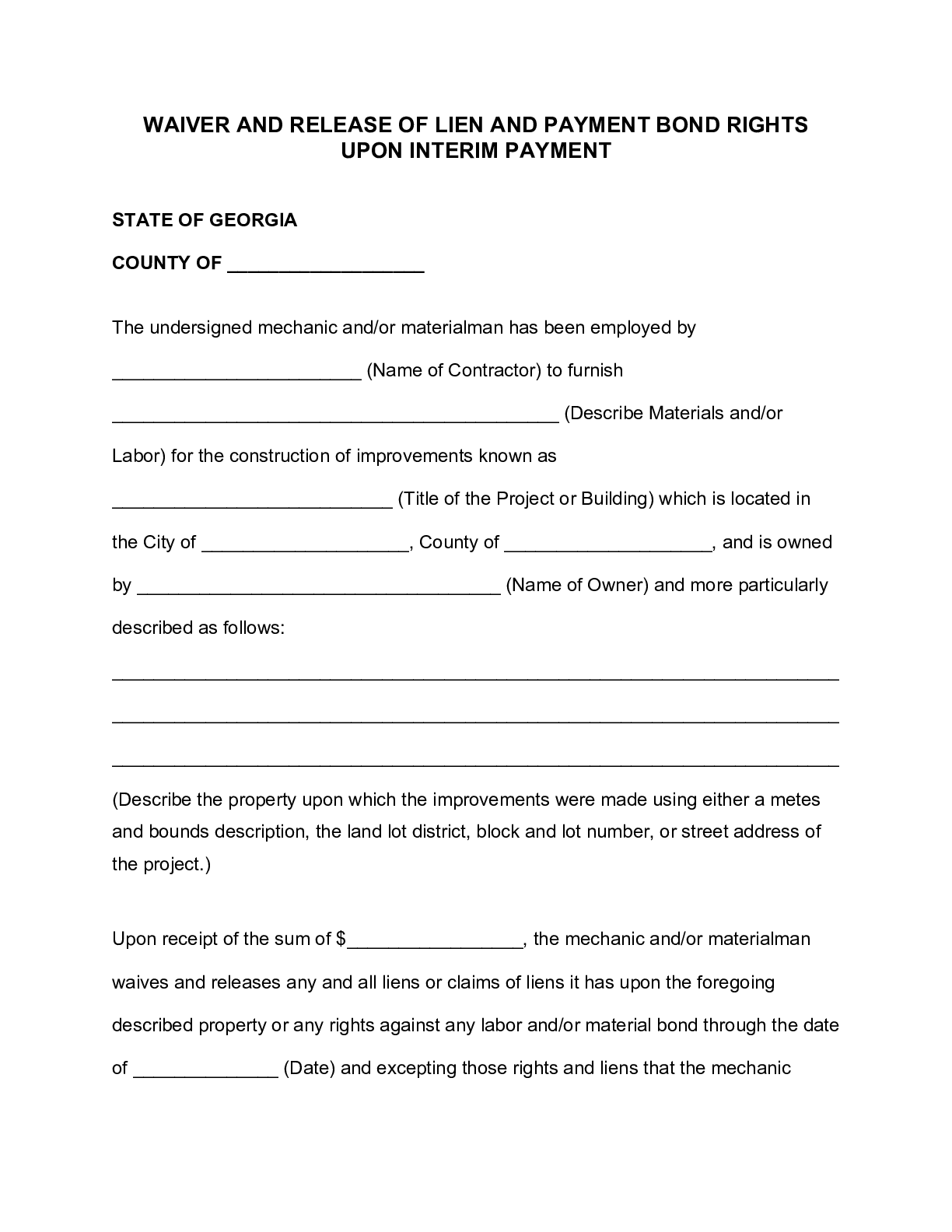Georgia Lien Waiver Rules
- Rules at a Glance
- Top Links
Specific Form Required
Georgia requires lien waivers to follow the statutory template provided in order for the waiver to be valid and enforceable.
Notary Not Required
Georgia lien waivers must be “given under hand and seal” and witnessed, but this is different than notarization. However, if an Affidavit of Nonpayment is required after a lien waiver has been signed and delivered, the affidavit must be notarized.
Cannot Waive Rights in Contract
Georgia law prohibits waiving the right to claim a lien in advance of the furnishing of the labor and/or materials to the project.
Can Waive Rights Before Payment
Georgia lien waivers are all conditional; i.e. are not enforceable unless payment has been made. But if an Affidavit of Nonpayment isn't filed within 90 days, the waiver becomes unconditional and binding; even if payment isn't made.
- Georgia Lien Waiver Forms & Guide- All You Need to Know
- Georgia's Unusual Mechanics Lien Rules
- Guide to Georgia Interim Waiver
- Guide to Georgia Final Waiver
- Georgia Lien Waivers Can Waive More Than Lien Rights
- Georgia Governor Signs Lien Waiver Changes Into Law
- Webinar: What Georgia's New Lien Law Changes Mean for Contractors Seeking Payment
Georgia lien waivers are regulated in form and in timing. This is great news for contractors, suppliers, lenders, property developers, and anyone else on a Georgia construction project. Georgia is just one of 12 states that provide statutory lien waiver forms and have specific lien waiver laws. And, while it may seen frustrating to need to comply with specific statutory requirements, on every waiver, the truth is that it makes it much, much easier to know what you are providing and receiving, and to check if things are on the up and up.
Lien waivers can be complex documents. But, given how often they are exchanged, they are often times rubber-stamped and given no attention. A lien waiver works like a receipt that payment has been made, or has been promised, for work or materials furnished on a job. These documents are exchanged at the time of payment, and commonly attached to subcontractor pay applications or vendor invoices.
There are different types of lien releases for different types of situations, depending on whether payment has been made or was promised, and whether the project has ended or is ongoing. Since they are generally required with nearly every pay application or invoice, and for all parties on the payment chain, one frustrating thing about lien waivers is that the process of sending, requesting, tracking, and collecting lien waivers is an administrative pain that slows down payment.
As mentioned above, Georgia provides a lien waiver form template in its statutes, and that particular template should be used by everyone in Georgia in order to ensure their lien waivers are compliant and enforceable.
You can find guides to Georgia interim and final lien waivers (forms, how-tos, and more) at the following links:
- Guide to Georgia’s Interim Lien Waiver for Progress Payments
- Guide to Georgia’s Final Lien Waiver for a Final Payment
Georgia’s lien waiver rules are particularly unique, as they are both conditional and unconditional. Each waiver is conditional for a period of 90 days. After 90 days, the lien waiver becomes unconditional; whether payment has been made or not. To stop this, the waiving party must file an Affidavit of Nonpayment within that 90-day timeframe.
*Note: The Georgia legislature recently enacted amendments to the lien waiver rules, which have been incorporated and updated on this page. For more on these changes, see: Georgia Governor Signs Lien Waiver Changes into Law (Effective 2021).



